
Kouter: The Heartbeat of Ghent’s Elegance
Nestled in the vibrant city of Ghent, Kouter is a delightful blend of historical charm and modern sophistication. This picturesque square is a bustling hub of activity, offering visitors a unique glimpse into the daily life of the locals. Kouter is renowned for its elegant architecture, with beautifully preserved buildings that speak volumes about Ghent's rich cultural past. Every Sunday, Kouter transforms into a lively flower market, where the air is filled with the fragrance of fresh blooms. This tradition dates back to the 18th century and is a must-see for any visitor. The market not only offers a splendid array of flowers but also a chance to experience the local culture and mingle with the friendly residents. Kouter is also a great starting point to explore Ghent's many attractions. Nearby, you’ll find the stunning Opera House, where you can catch a world-class performance. The square is lined with charming cafes and restaurants, perfect for a relaxing coffee break or a delicious meal. Don’t miss out on a visit to the Handelsbeurs Concert Hall, an architectural gem that hosts a variety of events and performances throughout the year.
Local tips in Kouter
- Visit the flower market on Sunday mornings for a colorful and fragrant experience.
- Stop by the nearby Opera House for a glimpse of stunning architecture and possible performances.
- Enjoy a coffee or meal at one of the local cafes lining the square for a true taste of Ghent.
- Check the schedule at the Handelsbeurs Concert Hall for any concerts or events during your visit.
Kouter: The Heartbeat of Ghent’s Elegance
Nestled in the vibrant city of Ghent, Kouter is a delightful blend of historical charm and modern sophistication. This picturesque square is a bustling hub of activity, offering visitors a unique glimpse into the daily life of the locals. Kouter is renowned for its elegant architecture, with beautifully preserved buildings that speak volumes about Ghent's rich cultural past. Every Sunday, Kouter transforms into a lively flower market, where the air is filled with the fragrance of fresh blooms. This tradition dates back to the 18th century and is a must-see for any visitor. The market not only offers a splendid array of flowers but also a chance to experience the local culture and mingle with the friendly residents. Kouter is also a great starting point to explore Ghent's many attractions. Nearby, you’ll find the stunning Opera House, where you can catch a world-class performance. The square is lined with charming cafes and restaurants, perfect for a relaxing coffee break or a delicious meal. Don’t miss out on a visit to the Handelsbeurs Concert Hall, an architectural gem that hosts a variety of events and performances throughout the year.
Iconic landmarks you can’t miss
Gravensteen
Explore Gravensteen, the iconic medieval castle in Ghent, Belgium, and immerse yourself in the fascinating history of this remarkable site.
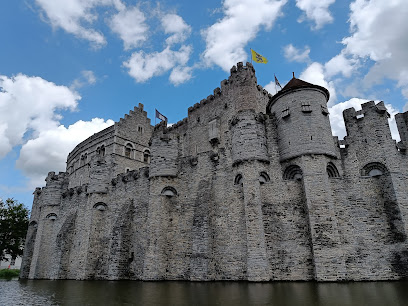
Saint Bavo's Cathedral
Explore the breathtaking Gothic beauty of Saint Bavo's Cathedral in Ghent, Belgium. A must-visit landmark for art and architecture lovers.
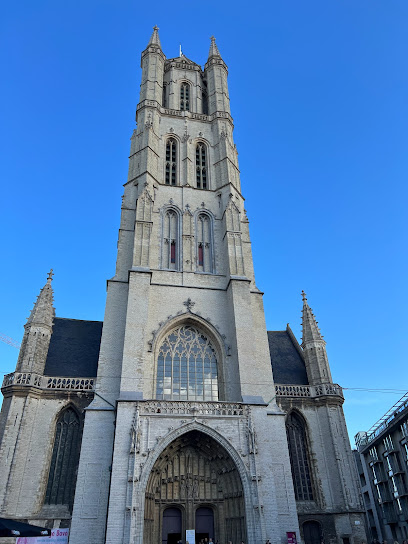
Belfry of Ghent
Discover the Belfry of Ghent: A medieval marvel with stunning views and rich history, right in the heart of Belgium.
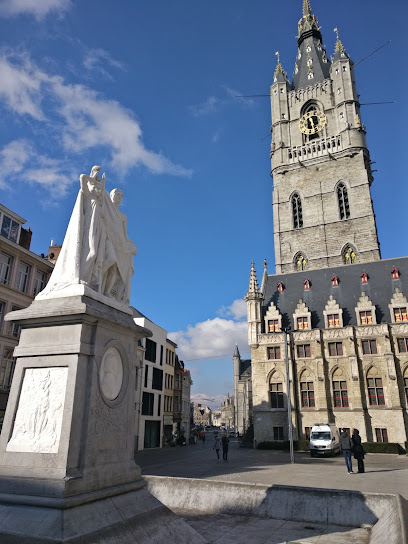
Graffiti Street
Immerse yourself in the vibrant street art of Graffiti Street, Ghent's unique open-air gallery showcasing dynamic urban creativity.
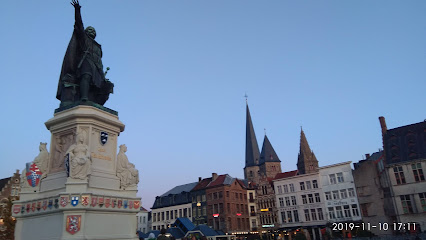
Ghent City Hall
Discover the architectural beauty and historical significance of Ghent City Hall, a must-visit landmark in the heart of Ghent, Belgium.
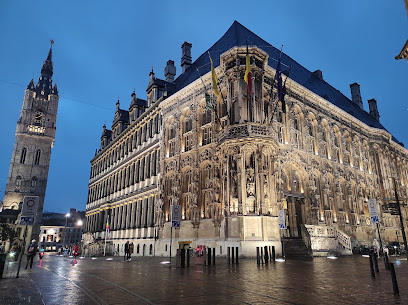
Saint Michael's Church
Discover the enchanting Saint Michael's Church in Ghent, a stunning Gothic masterpiece with breathtaking architecture and serene ambiance.
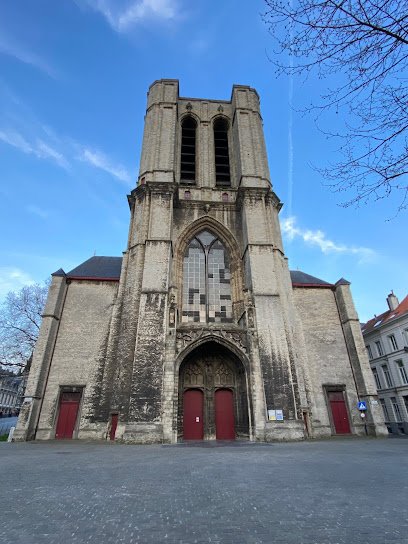
Kouter
Discover Kouter, Ghent's historical landmark, where stunning architecture meets vibrant local culture in a picturesque square.
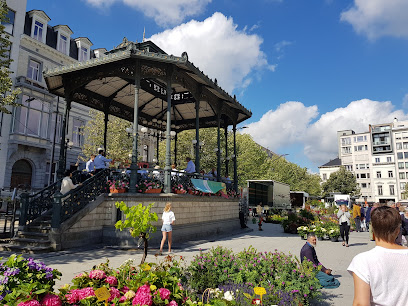
Sint-Baafsplein
Explore the enchanting Sint-Baafsplein in Ghent, Belgium, where history meets vibrant culture in a stunning medieval setting.
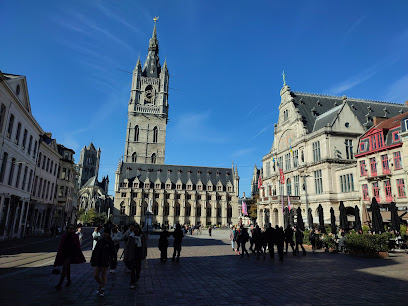
Jose Rizal Historical Marker - Ghent, Belgium
Discover the Jose Rizal Historical Marker in Ghent, Belgium—an important tribute to Filipino heritage and a symbol of cultural ties between nations.
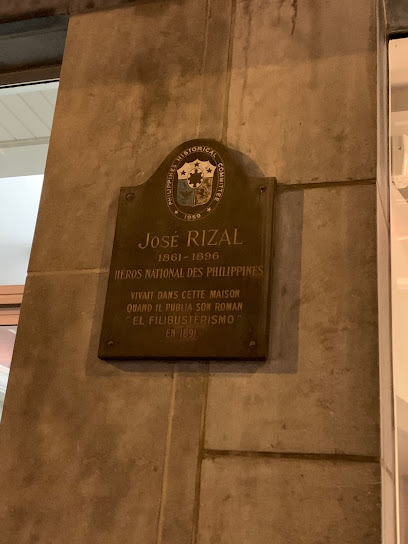
Treaty of Ghent Marker
Discover the Treaty of Ghent Marker in Ghent, a significant historical landmark commemorating the end of the War of 1812 with rich storytelling and local charm.
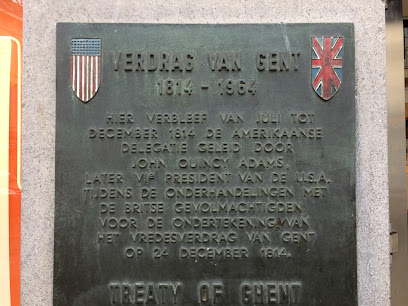
Essential places to dine
Café Theatre
Experience exquisite Belgian and French cuisine at Café Theatre in Ghent - where culinary artistry meets vibrant atmosphere.
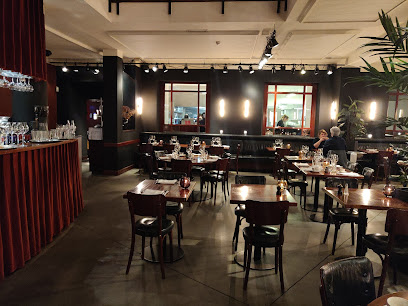
Pane & Vino
Experience the best of Italian cuisine at Pane & Vino in Ghent – where every pizza tells a story of tradition and flavor.
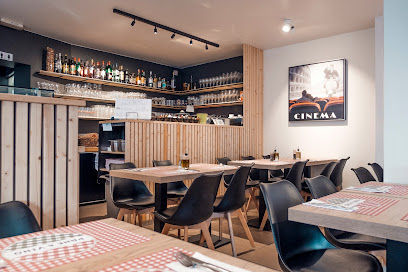
Brasserie Café des Arts
Discover the charm of Ghent at Brasserie Café des Arts – where local flavors meet vibrant ambiance in an unforgettable dining experience.
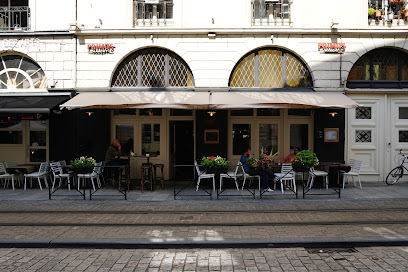
Otium Cucina Italiana Restaurant
Experience authentic Italian cuisine at Otium Cucina Italiana in Ghent—delicious dishes crafted with fresh ingredients await you.
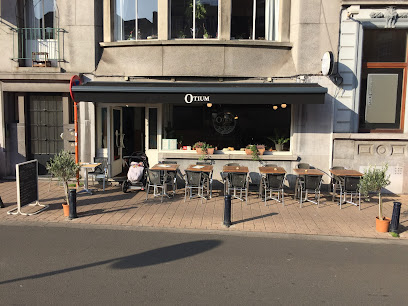
Revue
Experience culinary excellence at Revue in Ghent, where local flavors meet innovative cuisine in an elegant setting.
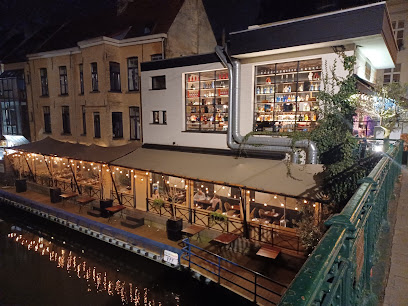
Brasserie HA'
Experience authentic Belgian cuisine at Brasserie HA', where tradition meets modernity in the heart of Ghent.
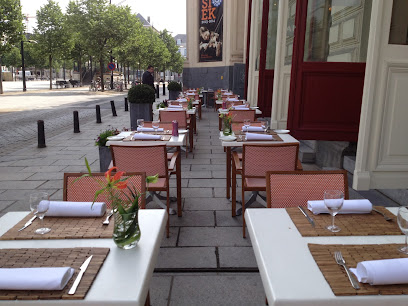
Fratelli D'Italia Gent
Experience the essence of Italy at Fratelli D'Italia in Ghent - where every meal is crafted with passion and tradition.
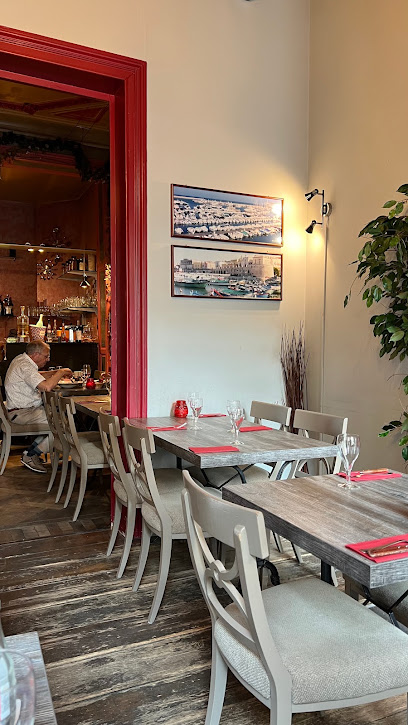
Le homard rouge
Savor the finest seafood in Ghent at Le Homard Rouge, where every dish is crafted with passion and served with elegance.
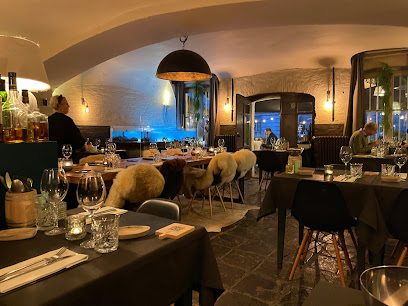
Cuit Gent
Discover Cuit Gent: A delightful diner offering fresh local cuisine in the heart of Ghent.
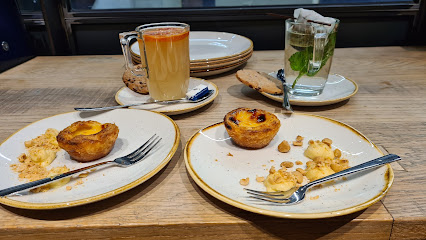
De Blauwe Kiosk
Experience exquisite seafood at De Blauwe Kiosk in Ghent – where every oyster tells a story of freshness and flavor.
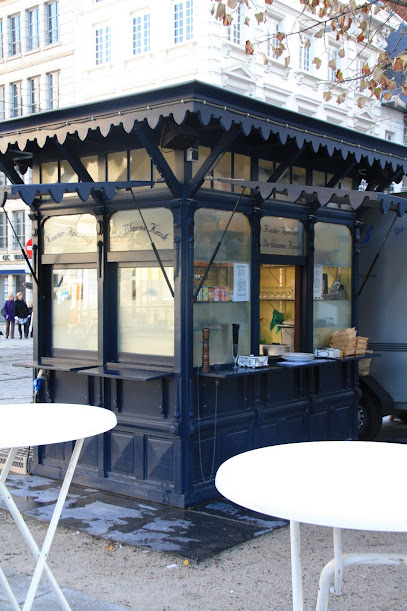
Markets, malls and hidden boutiques
Flying Tiger Copenhagen
Explore Flying Tiger Copenhagen in Ghent for unique gifts, fun toys, and creative home goods that delight visitors of all ages.
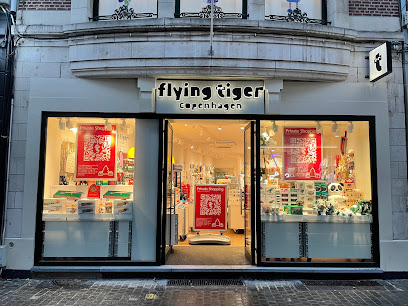
Juttu
Explore Juttu in Ghent for a unique blend of sustainable fashion and delightful gifts that capture the spirit of Belgian culture.
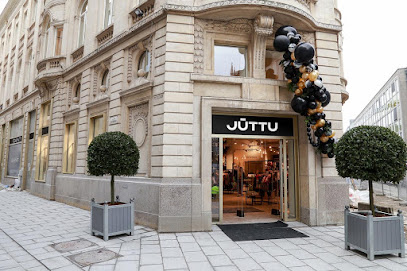
The Vault Gent
Discover unique treasures and local artistry at The Vault Gent, the ultimate gift shop in the heart of Ghent, Belgium.
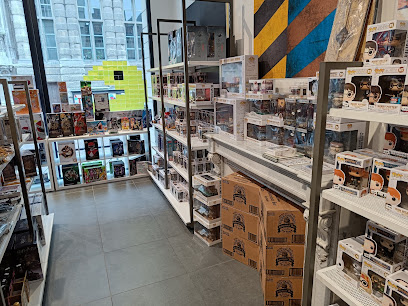
Vintage Factory Gent
Explore the charm of Vintage Factory Gent, where vintage clothing meets music in a unique shopping experience in the heart of Ghent.
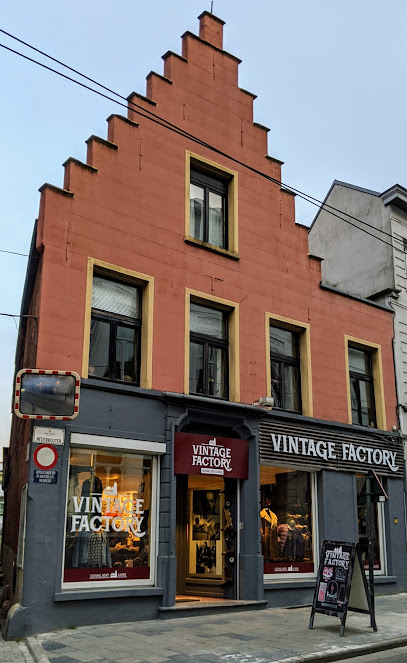
G-Star RAW Store
Explore the latest in sustainable fashion and stylish denim at G-Star RAW Store in Ghent, your go-to destination for trendy clothing and accessories.
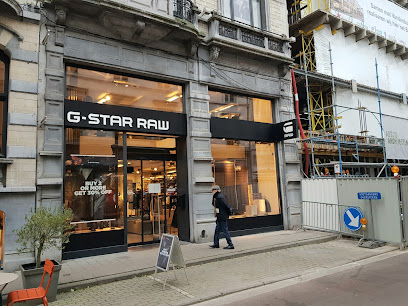
State of Art Store Gent
Explore contemporary men's fashion at the State of Art Store in Ghent, where style meets quality in a welcoming shopping atmosphere.
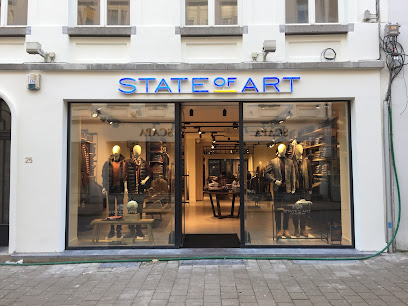
Tommy Hilfiger
Explore Tommy Hilfiger in Ghent for a stylish shopping experience with a wide selection of clothing and accessories for every fashion enthusiast.
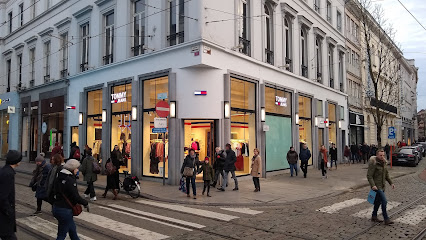
Au Bon Marché
Discover unique gifts and exquisite fashion accessories at Au Bon Marché, a hidden gem in the heart of Ghent perfect for tourists.
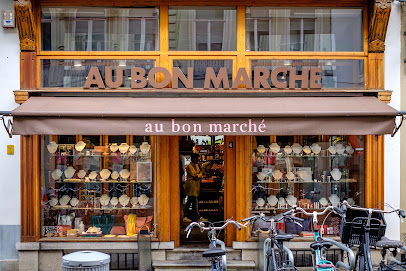
A'pril
Explore unique gifts and stunning maps at A'pril, the perfect spot for souvenirs in the heart of Ghent.
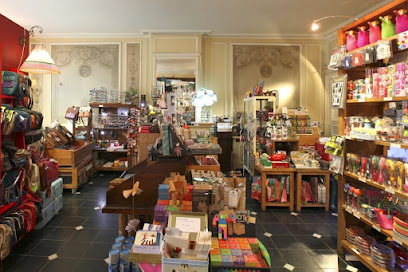
Agnes & Maurice
Explore Ghent's hidden gem, Agnes & Maurice Boutique, where local craftsmanship meets unique shopping experiences.
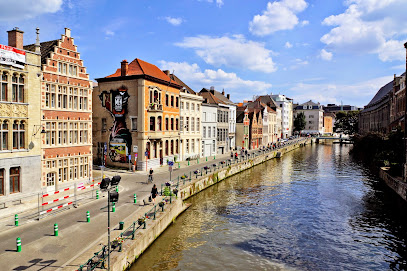
Essential bars & hidden hideouts
Patrick Foley's
Discover the heart of Irish culture in Ghent at Patrick Foley's, a lively pub offering delicious food, drinks, and a welcoming atmosphere.
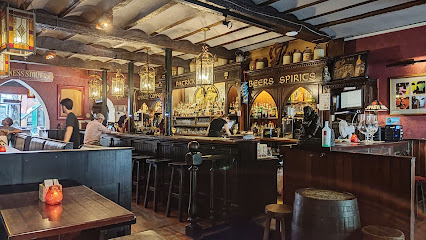
Café Theatre
Experience the vibrant charm of Café Theatre in Ghent, where Belgian flavors meet French culinary artistry in a lively setting.
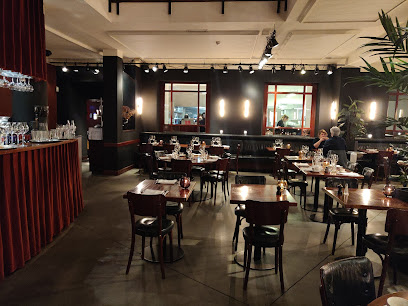
De Alchemist
Experience the authentic nightlife of Ghent at De Alchemist, a cozy pub serving local brews and vibrant atmosphere for all visitors.
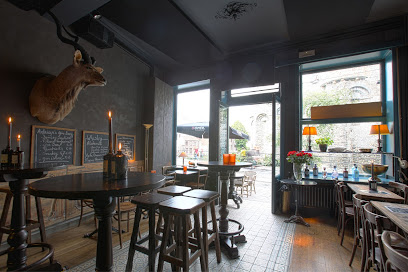
Café Den Turk
Discover the cozy charm and vibrant atmosphere of Café Den Turk, a must-visit bar in Ghent offering a wide selection of Belgian beers and delightful ambiance.
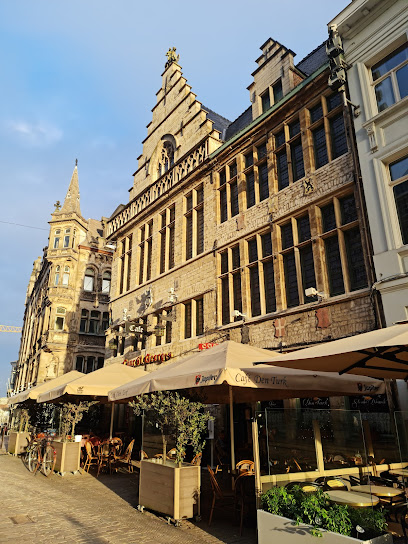
Jigger's
Experience Ghent's finest cocktails in a chic and vibrant setting at Jigger's, the ultimate cocktail bar for night owls and flavor seekers.
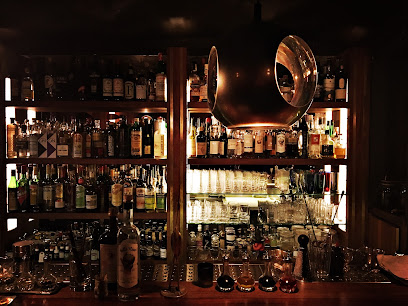
Bar Lume
Discover the lively Bar Lume in Ghent, a must-visit bar with live music and a great atmosphere for unforgettable nights out.
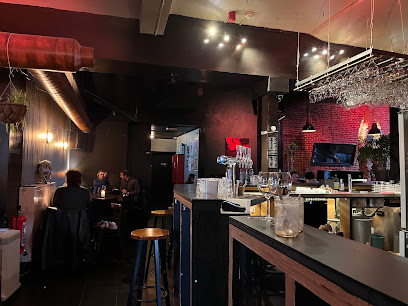
Parole Winebar & Co
Unwind at Parole Winebar & Co, a cozy enclave in Ghent offering an exquisite selection of wines and a warm, inviting atmosphere.
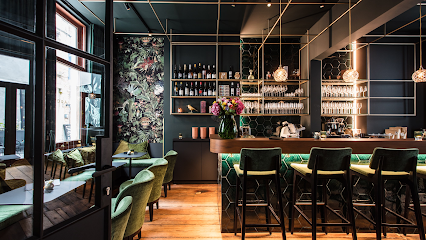
De Blauwe Kiosk
Discover the best oysters and seafood in Ghent at De Blauwe Kiosk, a cozy oyster bar in the vibrant Kouter area.
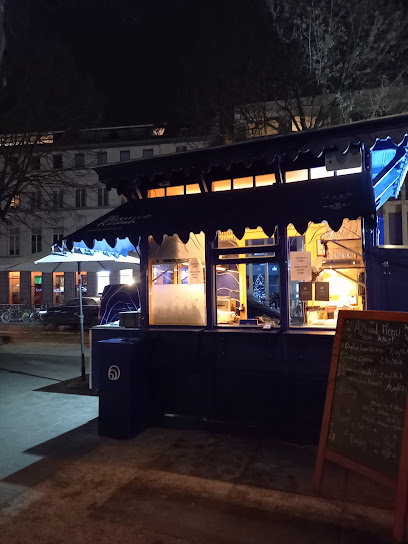
The Cobbler - Gent
Discover The Cobbler, a vibrant bar in Ghent's historic Graslei, offering local drinks and a cozy ambiance amidst stunning canal views.
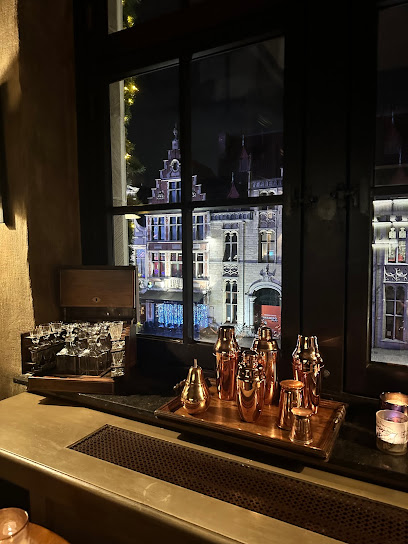
Oyster bar
Discover the best of Ghent's seafood scene at the Oyster Bar, where fresh oysters and local flavors come together in a cozy atmosphere.
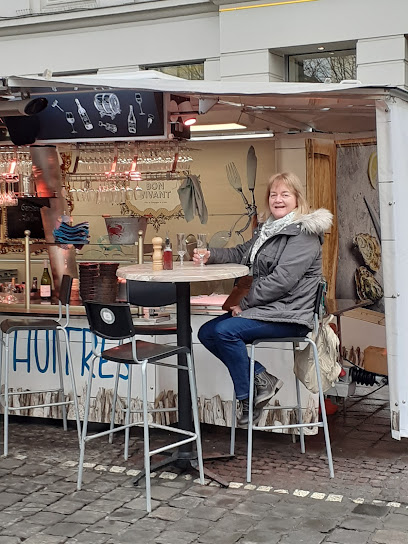
Local Phrases
-
- HelloHallo
[ha-lo] - GoodbyeTot ziens
[tot zeens] - YesJa
[ya] - NoNee
[nee] - Please/You're welcomeAlsjeblieft
[als-ya-bleeft] - Thank youDank je
[dank ye] - Excuse me/SorrySorry
[so-ree] - How are you?Hoe gaat het met jou?
[hu gat het met yow] - Fine. And you?Goed. En met jou?
[hut. en met yow] - Do you speak English?Spreek je Engels?
[sprek ye eng-els] - I don't understandIk begrijp het niet
[ik buh-grayp het neet]
- HelloHallo
-
- I'd like to see the menu, pleaseMag ik de menukaart zien, alstublieft
[mag ik de me-nu-kart seen, al-stu-bleeft] - I don't eat meatIk eet geen vlees
[ik eet khan vlays] - Cheers!Proost!
[prost] - I would like to pay, pleaseIk zou graag willen betalen, alstublieft
[ik zow hraag vil-len buh-tal-en, al-stu-bleeft]
- I'd like to see the menu, pleaseMag ik de menukaart zien, alstublieft
-
- Help!Help!
[help] - Go away!Ga weg!
[ga wekh] - Call the Police!Bel de politie!
[bel de po-li-tee] - Call a doctor!Bel een dokter!
[bel an dok-ter] - I'm lostIk ben verdwaald
[ik ben fer-dwaald] - I'm illIk ben ziek
[ik ben zik]
- Help!Help!
-
- I'd like to buy...Ik zou graag willen kopen...
[ik zow hraag vil-len koh-pen] - I'm just lookingIk ben alleen aan het kijken
[ik ben al-leen an het kee-ken] - How much is it?Hoeveel kost het?
[hu-vel kost het] - That's too expensiveDat is te duur
[dat is tuh dyur] - Can you lower the price?Kunt u de prijs verlagen?
[kunt u de prees ver-lah-ghen]
- I'd like to buy...Ik zou graag willen kopen...
-
- What time is it?Hoe laat is het?
[hu lat is het] - It's one o'clockHet is een uur
[het is an oor] - Half past (10)Half elf
[half elf] - MorningOchtend
[okt-end] - AfternoonMiddag
[mid-dahkh] - EveningAvond
[ah-vont] - YesterdayGisteren
[ghis-ter-en] - TodayVandaag
[van-dahkh] - TomorrowMorgen
[mor-ghen] - 1Eén
[ane] - 2Twee
[twee] - 3Drie
[dree] - 4Vier
[veer] - 5Vijf
[vayf] - 6Zes
[zehs] - 7Zeven
[zeh-ven] - 8Acht
[ahkht] - 9Negen
[nee-khen] - 10Tien
[teen]
- What time is it?Hoe laat is het?
-
- Where's a/the...?Waar is een/de...?
[var is an/de] - What's the address?Wat is het adres?
[vat is het ah-dres] - Can you show me (on the map)?Kunt u mij laten zien (op de kaart)?
[kunt u may la-ten zeen (op de kart)] - When's the next (bus)?Wanneer is de volgende (bus)?
[va-ner is de vol-gen-de (bus)] - A ticket (to ....)Een kaartje (naar ....)
[ane kart-ye (nar)]
- Where's a/the...?Waar is een/de...?
History of Kouter
-
The Kouter neighborhood in Ghent has its origins in the medieval period, originally serving as a site for agricultural activities and markets. The name 'Kouter' itself is derived from the Dutch word for 'field,' indicating its historical use as open land. During the 12th century, this area began to develop as a marketplace, a reflection of Ghent's growing economic importance during the Middle Ages.
-
In the 18th century, Kouter evolved significantly with the transformation of the square into a fashionable promenade. This development was part of a broader urban planning initiative in Ghent, where public spaces became increasingly important for social gatherings and cultural events. The square became a hub for the bourgeoisie, showcasing the wealth and cultural aspirations of the time.
-
The 19th century brought about a wave of architectural innovation to Kouter. Notable buildings such as the neoclassical church of Saint James (Sint-Jacobskerk) and the elegant townhouses lining the square were constructed during this period. These structures reflected the prosperity of Ghent at the time, as well as the influence of various architectural styles that characterized the city.
-
Throughout the 20th century, Kouter maintained its status as a cultural hotspot in Ghent. The square frequently hosted festivals, markets, and other public events, reinforcing its role as a center for community life. The establishment of the Kouter flower market in the early 1900s further solidified its importance, drawing visitors from across the region.
-
Today, Kouter is a vibrant blend of history and modernity. While it continues to host cultural events and markets, it also features contemporary cafes, shops, and art spaces. The neighborhood is emblematic of Ghent's ability to preserve its historical legacy while embracing contemporary urban life, making it a unique destination for both locals and tourists alike.
Kouter Essentials
-
Kouter is centrally located in Ghent and is easily accessible by various modes of transport. If you arrive at Ghent's main train station (Gent-Sint-Pieters), you can take tram line 1 directly to Kouter, which takes about 15 minutes. From the city center, Kouter is a short 10-minute walk from St. Bavo's Cathedral. Buses also service Kouter from surrounding neighborhoods, with stops nearby. If you are driving, there are parking facilities available, but be mindful of parking fees and regulations.
-
Kouter is a pedestrian-friendly area, making it easy to explore on foot. The tram system in Ghent is efficient, with frequent services connecting Kouter to other parts of the city. Bicycles can be rented from various bike-sharing services, providing a great way to navigate Ghent’s flat terrain. For longer distances or late-night travel, local taxis are available, and ridesharing services operate in the area.
-
Kouter is considered a safe neighborhood for tourists, but standard safety precautions should still be taken. Petty crimes like pickpocketing can occur in crowded areas, so keep your belongings secure. It is advisable to avoid poorly lit streets at night. Areas near the train station may have higher instances of petty crime, so stay vigilant in those parts. Overall, being aware of your surroundings is key to having a safe experience.
-
In case of an emergency, dial 112 for immediate assistance in Belgium. This number connects you to police, fire, and ambulance services. For non-emergencies, the local police station is located nearby. If you need medical attention, there are clinics and pharmacies in the area. It’s advisable to have travel insurance that covers health emergencies.
-
Fashion: Do wear comfortable walking shoes and dress for the weather. Avoid overly casual attire when dining in more upscale restaurants. Religion: Do respect local customs when visiting churches; dress modestly and be quiet inside. Public Transport: Do validate your tram or bus ticket before boarding. Don’t eat or drink on public transport. Greetings: Do greet locals with a friendly 'Hallo' or 'Bonjour.' Don’t be overly formal; a smile goes a long way. Eating & Drinking: Do try local specialties like Waterzooi and sample beers. Don’t rush when dining; meals are often leisurely, and it is polite to finish your food before leaving.
-
To experience Kouter like a local, visit the flower market, which takes place on Sundays, and explore the nearby parks for a relaxing afternoon. Engage with local vendors and try traditional snacks from street stalls. Don’t hesitate to ask locals for recommendations on hidden gems or lesser-known eateries. For a unique cultural experience, check out the nearby opera house or catch a performance at the local theater.
Nearby Cities to Kouter
-
Things To Do in Aalst
-
Things To Do in Bruges
-
Things To Do in Kortrijk
-
Things To Do in Knokke-Heist
-
Things To Do in Zeebrugge
-
Things To Do in Brussels
-
Things To Do in Blankenberge
-
Things To Do in Antwerp
-
Things To Do in Mechelen
-
Things To Do in De Haan
-
Things To Do in Tournai
-
Things To Do in Ostend
-
Things To Do in Ostend-Bruges International Airport
-
Things To Do in Ypres
-
Things To Do in Lille





